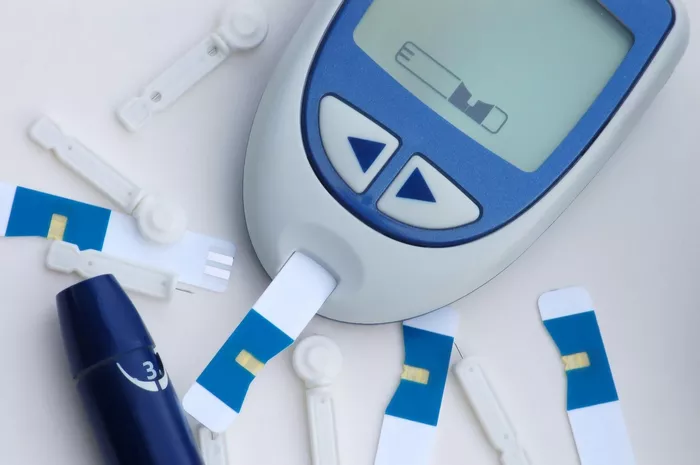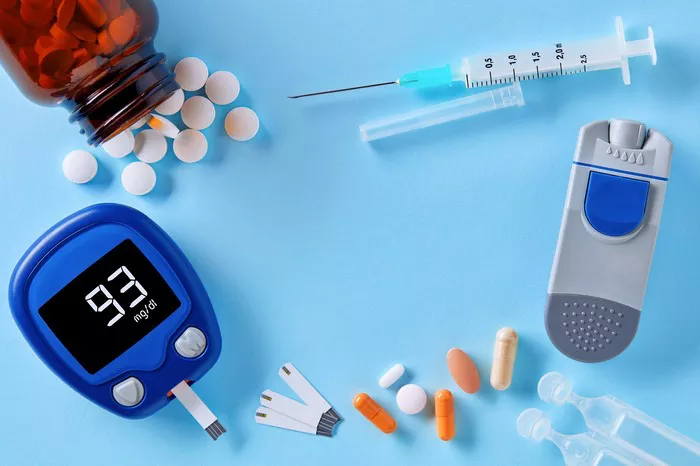Type 1 diabetes (T1D) is a chronic autoimmune condition characterized by the destruction of insulin-producing beta cells in the pancreas, leading to insulin deficiency and dysregulation of blood glucose levels. Achieving and maintaining optimal blood sugar levels is essential for individuals with T1D to prevent acute complications, such as hypoglycemia and hyperglycemia, and reduce the risk of long-term complications, including cardiovascular disease, neuropathy, and retinopathy. In this comprehensive article, we delve into the intricacies of blood sugar management in T1D, explore recommended targets, factors influencing variability, and implications for overall health and well-being.
1. Understanding Blood Sugar Targets:
Blood sugar targets refer to the optimal range of blood glucose levels that individuals with T1D should aim to achieve and maintain throughout the day to minimize the risk of acute and chronic complications. The American Diabetes Association (ADA) and the International Society for Pediatric and Adolescent Diabetes (ISPAD) provide guidelines for blood sugar targets in individuals with T1D, which may vary based on age, comorbidities, individualized treatment goals, and the presence of hypoglycemia unawareness.
- Fasting Blood Glucose: Fasting blood glucose refers to blood glucose levels measured after an overnight fast (typically 8 hours) and before meals. The recommended fasting blood glucose target for most adults and children with T1D is between 80 to 130 mg/dL (4.4 to 7.2 mmol/L), according to ADA guidelines. However, individualized targets may vary based on age, pregnancy status, and other clinical factors.
- Preprandial Blood Glucose: Preprandial blood glucose, also known as premeal blood glucose, refers to blood glucose levels measured before meals. The recommended preprandial blood glucose target for most adults and children with T1D is between 80 to 130 mg/dL (4.4 to 7.2 mmol/L), according to ADA guidelines. Achieving and maintaining preprandial blood glucose within target range helps optimize postprandial glycemic control and minimize fluctuations in blood sugar levels throughout the day.
- Postprandial Blood Glucose: Postprandial blood glucose refers to blood glucose levels measured after meals, typically 1 to 2 hours after eating. The recommended postprandial blood glucose target for most adults and children with T1D is less than 180 mg/dL (10.0 mmol/L), according to ADA guidelines. However, individualized targets may vary based on personal preferences, glycemic variability, and the presence of gastroparesis or other gastrointestinal issues affecting digestion and absorption.
2. Factors Influencing Blood Sugar Variability:
Blood sugar variability refers to fluctuations in blood glucose levels over time, encompassing both short-term variability (within-day fluctuations) and long-term variability (day-to-day fluctuations). Several factors can influence blood sugar variability in individuals with T1D, including:
- Insulin Therapy: The type, dose, timing, and delivery method of insulin therapy play a crucial role in blood sugar management and variability in individuals with T1D. Multiple daily injections (MDI) of insulin or continuous subcutaneous insulin infusion (insulin pump therapy) allows for flexible dosing and adjustment of basal and bolus insulin to match carbohydrate intake, physical activity, and other lifestyle factors.
- Carbohydrate Intake: Carbohydrate intake, including the type, amount, and timing of carbohydrate-containing foods and beverages, can impact blood sugar levels and variability in individuals with T1D. Carbohydrate counting and meal planning help individuals match insulin doses to carbohydrate intake, minimizing postprandial glycemic excursions and optimizing glycemic control.
- Physical Activity: Physical activity and exercise have profound effects on blood sugar levels and variability in individuals with T1D. Exercise increases glucose uptake by skeletal muscles, enhances insulin sensitivity, and may lead to transient hypoglycemia during or after activity. Adjustments to insulin doses, carbohydrate intake, and monitoring blood glucose levels before, during, and after exercise are essential for preventing hypoglycemia and optimizing glycemic control.
- Stress and Illness: Stress, illness, and other physiological or psychological factors can influence blood sugar levels and variability in individuals with T1D. Stress hormones, such as cortisol and adrenaline, can raise blood glucose levels through gluconeogenesis and glycogenolysis, contributing to hyperglycemia during periods of stress or illness. Additionally, changes in appetite, hydration, and medication adherence during illness may affect glycemic control and require adjustments to insulin therapy.
- Hormonal Changes: Hormonal changes, such as those occurring during puberty, menstruation, pregnancy, and menopause, can impact blood sugar levels and variability in individuals with T1D. Fluctuations in hormone levels, particularly estrogen and progesterone, can affect insulin sensitivity, carbohydrate metabolism, and glycemic control, necessitating adjustments to insulin doses and treatment regimens to maintain target blood sugar levels.
3. Implications for Overall Health and Well-Being:
Optimal blood sugar management is essential for maintaining overall health and well-being in individuals with T1D and reducing the risk of acute and chronic complications. Chronic hyperglycemia (elevated blood glucose levels) is associated with an increased risk of microvascular complications, including diabetic retinopathy, nephropathy, and neuropathy, as well as macrovascular complications, such as cardiovascular disease, stroke, and peripheral vascular disease.
Conversely, frequent or severe hypoglycemia (low blood glucose levels) can lead to acute complications, including cognitive impairment, seizures, loss of consciousness, and death if left untreated. Hypoglycemia unawareness, characterized by an impaired ability to recognize hypoglycemic symptoms, further increases the risk of severe hypoglycemic events and necessitates careful monitoring and management of blood sugar levels to prevent complications.
Achieving and maintaining target blood sugar levels within recommended ranges can help individuals with T1D optimize their quality of life, reduce the risk of diabetes-related complications, and improve long-term health outcomes. Comprehensive diabetes education, regular monitoring of blood glucose levels, individualized treatment regimens, and ongoing support from healthcare providers and diabetes care teams are essential for successful blood sugar management and overall well-being in individuals with T1D.
4. Conclusion:
In conclusion, blood sugar management is a cornerstone of diabetes care in individuals with type 1 diabetes, with optimal glycemic control essential for preventing acute and chronic complications and maintaining overall health and well-being. Understanding blood sugar targets, factors influencing variability, and implications for health and well-being is crucial for individuals with T1D, caregivers, and healthcare providers to optimize diabetes management and improve long-term outcomes.
By incorporating comprehensive strategies for blood sugar monitoring, insulin therapy, carbohydrate management, physical activity, and stress management, individuals with T1D can achieve and maintain target blood sugar levels within recommended ranges, reduce the risk of complications, and lead healthy, fulfilling lives despite the challenges of living with diabetes. Ongoing research, education, and advocacy efforts are essential for advancing diabetes care, raising awareness, and improving outcomes for individuals living with T1D.



























